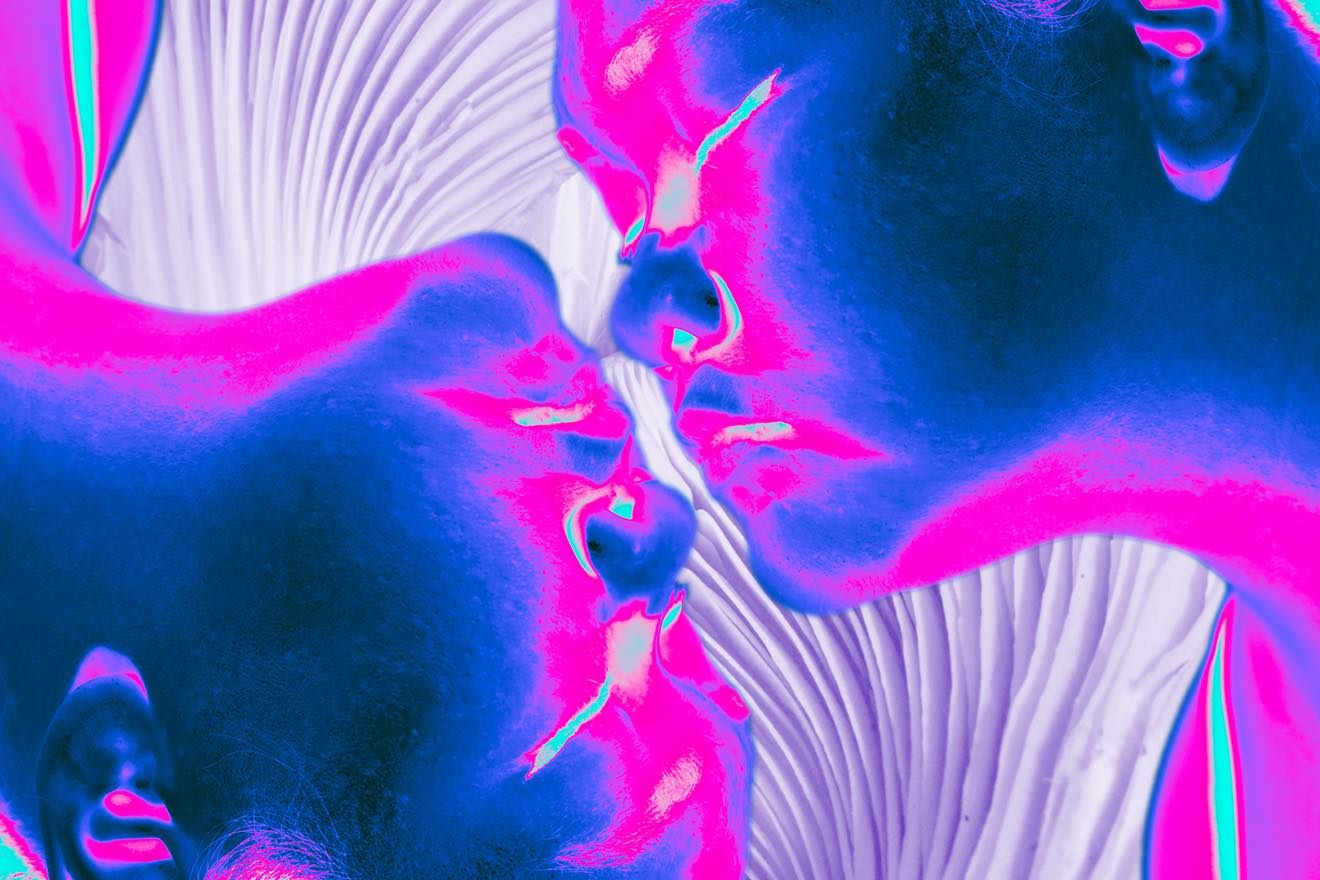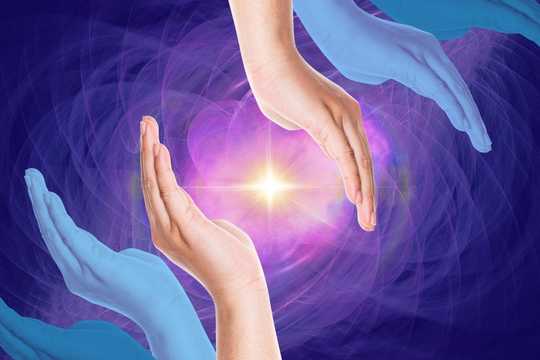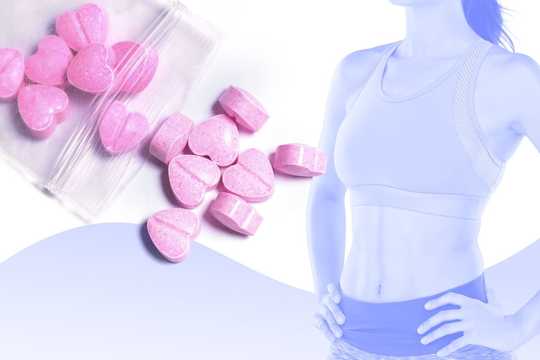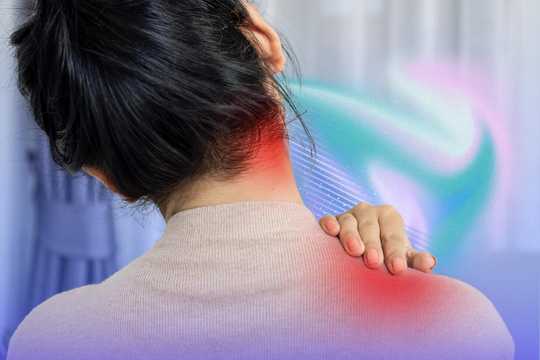As society begins relaxing its attitudes to previously taboo drugs such as cannabis, and now psilocybin, there will likely be an uptick in users from all walks of neurodivergent life. With this in mind, it’s critical to look back and consider how we came to our current understanding of psilocybin’s effect on the brain. The medical profession’s long history of discrimination against diverse populations, and the problematic past of clinical research, paints an incomplete and skewed picture of understanding psilocybin research, and only by expanding the patient pool can we hope to harness the full potency of this mushroom.
Psilocybin is the psychoactive component in psychedelic mushrooms and is quickly becoming the viral-news-worthy, antidepressant medication. Microdosing psilocybin, taking enough of the drug to sharpen the mind but not trigger psychedelic effects, has become popular in clinical research showing positive effects on people with depression, employing a small dosage at fewer intervals. However, psilocybin clinical trials are not available to everyone with depression. People with bipolar disorder, which is a common mental illness characterized by chronic depression and sudden mood swings, are not included in these trials because of concerns about potential risks.
While psilocybin has been shown to be effective in treating depression, a recent study has highlighted the need for caution in the bipolar population. The study found that 3.3% of participants with bipolar disorder experienced manic episodes and negative events after taking psilocybin. These individuals required emergency services, but many still believed that the overall benefits of the psilocybin experience outweighed the negative effects.
Additionally, potential benefits of psilocybin in treating depression have been shown to have anti-inflammatory effects and can hyper-stimulate serotonin receptors, which both play a crucial role in mood regulation. Individuals with bipolar disorder often have a brain chemistry that leads to the production of more neurotransmitters than those with depression alone, prior to the introduction of psilocybin, making traditional medication a more common mode of treatment. A growth in considerate-trial models and continued research can identify and address potential issues with clinical trials for psilocybin.
Unique Characteristics of Bipolar Disorder for Trials
Recent research suggests that psilocybin shares many qualities with typical antidepressants. For instance, people with depression who take daily antidepressants often report improvements in regulating their emotions and behavior, making day-to-day life easier to manage. However, a number of subjects have reported experiencing lingering positive effects weeks after one psilocybin trial. Additionally, there is evidence to suggest that psilocybin has anti-inflammatory effects, similar to the SSRIs that are commonly prescribed for depression. This is particularly relevant for people with bipolar disorder, who often experience chronic inflammation, which can be very painful to live with.
From a neurological perspective, psilocybin is comparable to antidepressants in that it delivers a more potent effect than daily pharmaceuticals. This is evident in a study on escitalopram (Lexapro) and psilocybin, where it took several daily doses to achieve the same effect as just one or two doses of psilocybin. It’s clear that psilocybin has a heightened impact on the same parts of the brain as prescribed antidepressants.
Unique Treatment Approaches for Bipolar Depression Compared to Major Depression
How come antidepressants work well for treating depression and not for treating bipolar depression?
- Bipolar disorder is a psychiatric condition that affects both mood and behavior, leading to episodes of mania and hypomania in addition to depression.
- Heightening activity of dopamine and norepinephrine imbalances certain neurotransmitters, including serotonin, are believed to be linked to bipolar disorder.
- Psilocybin can hyper-stimulate serotonin receptors, which play a crucial role in mood regulation.
- Patients with bipolar disorder may experience chronic states of mania that are well disguised and not visibly apparent before taking additional medications.
- Medications for bipolar disorder can impact food absorption and sleep, complicating treatment and consistency, especially for clinical trials.
How does psilocybin interact with the serotonin system in the brain?
Psilocybin is known to alter perception, mood, and cognitive thinking by binding to serotonin receptors, particularly the 5-HT2A receptor. However, individuals with bipolar disorder may have altered brain chemistry before the introduction of psilocybin, and traditional medication is typically used to manage their condition.
Here’s the effects of psilocybin on the brain:
- Increases the “happy chemical” serotonin in the brain.
- Keeps serotonin in the brain longer.
- Allows more serotonin to connect with brain cells.
- Effectively improves mood, clears depression or anxiety as a result.
- Changes in serotonin levels can affect how the brain controls mood.
Here’s a list of common medications used to regulate bipolar symptoms:
Mood stabilizers like lithium, valproate, carbamazepine, and lamotrigine:
- Usually immediately prescribed upon diagnosis of bipolar disorder.
- Changes the levels of some neurotransmitters, which are important for regulating mood.
- Mood stabilizers like lithium can make episodes of mania and depression happen less often and not be as intense.
- Lithium requires extremely careful monitoring due to its narrow therapeutic window and potential for toxic side effects.
- Lithium is often prescribed in combination with other medications such as antipsychotics or anticonvulsants for optimal effects.
Antipsychotics like aripiprazole, olanzapine, quetiapine, risperidone:
- Block dopamine and, to a lesser extent, serotonin receptors in the brain.
- Helps stabilize mood and reduce manic and psychotic symptoms.
- First-generation antipsychotics are generally more effective at treating manic symptoms but have a higher risk of side effects such as extrapyramidal symptoms (EPS).
- Second-generation antipsychotics are more effective at treating depressive symptoms and have a lower risk of EPS.
- High risk of metabolic side effects such as weight gain, diabetes, and high cholesterol.
Ultimately, if a trial participant is accustomed to or requires certain medications, it is clear the importance of identifying and addressing numerous factors to avoid potential issues. This complexity is amplified when preparing clinical trials for psilocybin, which is already known to induce changes in mood, perception, and cognition.
Rethinking Clinical Trials for Psilocybin and the Need for a More Sensitive Model
The CREST Bipolar Network has done an incredible job by creating engaging videos that feature interviews with top experts like Dr. David Gard, with San Francisco State University, Motivation and Emotion Research Lab and Dr. Josh Woolley, with University of California San Francisco. There’s an emphasis on the importance of incorporating therapy in conjunction with psilocybin, as it is agreed the safest approach. Additionally, they encourage individuals to be mindful of the limited research tools available to address this matter, underscoring the significance of continued research in this area.
Dr. David Gard urges the importance of trials consisting of psychotherapy, stating patients are able to find emotional balance within and after the trial is complete. In this video he discusses the following topics:
- Clinical trials exploring different psilocybin dosages are currently lacking.
- Dosage administration is unpredictable due to the difficulty in accurately measuring psilocin concentration.
- The recommended psilocybin dosage is 25mg with intensive preparation and a controlled setting.
- Psychedelics may have potential adverse effects when used with certain medications, but they are not necessarily the cause of bipolar disorder.
- Psychedelics are not currently prescribed by doctors, but some individual providers offer them.
- The only FDA-approved treatment option for depression is ketamine, but microdosing psilocybin shows promise for bipolar disorder due to its anti-inflammatory effect.
- Further studies are needed to confirm the effectiveness of microdosing psilocybin for bipolar disorder.
Dr. Josh Woolley explains in his video interview that psilocybin has been researched for its potential therapeutic effects, especially in treating depression. Dr. Woolley highlights:
- Psilocybin’s use in bipolar disorder is limited due to concerns about sleep disruption and mania.
- Limited research suggests that recreational use of psilocybin can trigger manic episodes.
- Clinical trials are thoroughly studying dosages and safety, especially for bipolar 2 disorder.
- Psychotherapy is important in psilocybin treatment for exploring depression and expanding worldview in bipolar disorder.
- Microdosing psilocybin may have therapeutic potential for future research.
- Research is examining psilocybin’s potential to treat mental health symptoms despite its counter culture association and government classification.
Follow your Curiosity
Sign up to receive our free psychedelic courses, 45 page eBook, and special offers delivered to your inbox.Neurological Insights from Dr. Erica Zelfand’s Presentation
Dr. Erica Zelfand, a Licensed Family Physician and Natural Medicine Practitioner, has provided a comprehensive and well-crafted video presentation that explains the activity of antidepressants in the brain. In the presentation, she highlights the impact of antidepressants on our neurology, which is the focus of most psychiatric medication research. It is surprising to note that 90-95% of the serotonin produced in our bodies is made in the gut, which accentuates the importance of proper nutrition and medication adherence.
Trial participants with bipolar disorder face these factors that may encounter disrupted receptor communication, which could heighten the risk of unfavorable reactions to psychedelic and bipolar therapy. To mitigate these concerns, it is crucial that clinical trials be customized to suit the unique needs of individuals with bipolar depression.
Ongoing Tailored Research in Clinical Trials of Psychedelic Therapy for Bipolar Disorder
As the science is still lacking, safety measures are imperative. As Dr. Zelfand referenced in her presentation with Psychedelic Support, it’s crucial to find a balance in utilizing all options and tools currently provided for psychiatric patients. It is imperative that we champion the participation of more psychiatric patients in clinical trials and endorse the advancement of research into the promising possibilities of psychedelic therapy.
With the hope of obtaining additional data in the near future, we aim to gain a better grasp of the obstacles encountered in conducting clinical trials of psilocybin for bipolar disorder. The importance of tailored and inclusive research cannot be understated, as it is essential in achieving a more profound comprehension of the efficacy of these treatments across diverse populations in mental health.






